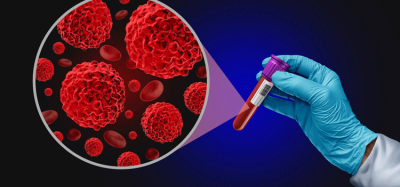Scientists target ALS and dementia RNA using novel molecule
Posted: 28 October 2021 | Anna Begley (Drug Target Review) | No comments yet
The small molecule successfully targeted the C9orf72 gene that causes amyotrophic lateral sclerosis (ALS) and frontotemporal dementia (FTD).


Researchers at the Scripps Research Institute, US, have developed a drug molecule that successfully targeted C9orf72, the RNA known to cause amyotrophic lateral sclerosis (ALS) and frontotemporal dementia (FTD), in mice.
While people with FTD appear outwardly to have a completely different illness than people with ALS, those whose condition is caused by the C9 genetic repeat have the same disease. The disease-causing mutations involve repeats of the nucleotides guanine and cytosine, specifically repeats of GGGGCC segments on chromosome 9, open reading frame 72 (C9orf72). The number of disease-causing repeats can range from around 60 into the thousands. People who inherit the diseased gene can develop ALS, FTD or both.
NEWS: Multi-omics approach identifies genes associated with alcohol use disorder – READ HERE
“This is a disease that runs in families. Based on the number of repeats, doctors can assess whether a patient would be affected with the disease. So, you know before a patient has symptoms that they have a high likelihood of developing it, and yet there is no treatment,” explained Dr Matthew Disney who led the study. “That makes it even more imperative to develop strategies to that could create a medicine.”
In their research, published in Science Translational Medicine, the team used diagnostic biomarkers and patient-derived neurons displaying the C9 mutations to design a small molecule that targeted the RNA involved in transcribing the gene causing the disease. The molecule causes an interaction between the RNA and pathways that a cell uses to eliminate RNAs. It eliminated 70 percent of the toxic protein fragments from mouse models, and removed most hallmarks of the disease from the patient-derived nerve cells.
ARTICLE: Getting “under the skin” of frontotemporal dementia
DISCOVER MORE HERE
Moreover, a single injection in the mice displayed benefit through the entire length of the study period, which was six weeks, commented first author Dr Jessica Bush. “I think that it is so exciting that we can look at a disease like ALS, and by taking a different approach or new perspective, we can open the door to a whole new world of possibilities, and start down the road toward therapies.”
Related topics
Biomarkers, Drug Targets, Genetic Analysis, Genomics, In Vivo, Molecular Targets, Neurons, Small molecule, Targets, Therapeutics
Related conditions
Amyotrophic Lateral Sclerosis (ALS), frontotemporal dementia (FTD)
Related organisations
The Scripps Research Institute
Related people
Dr Jessica Bush, Dr Matthew Disney








